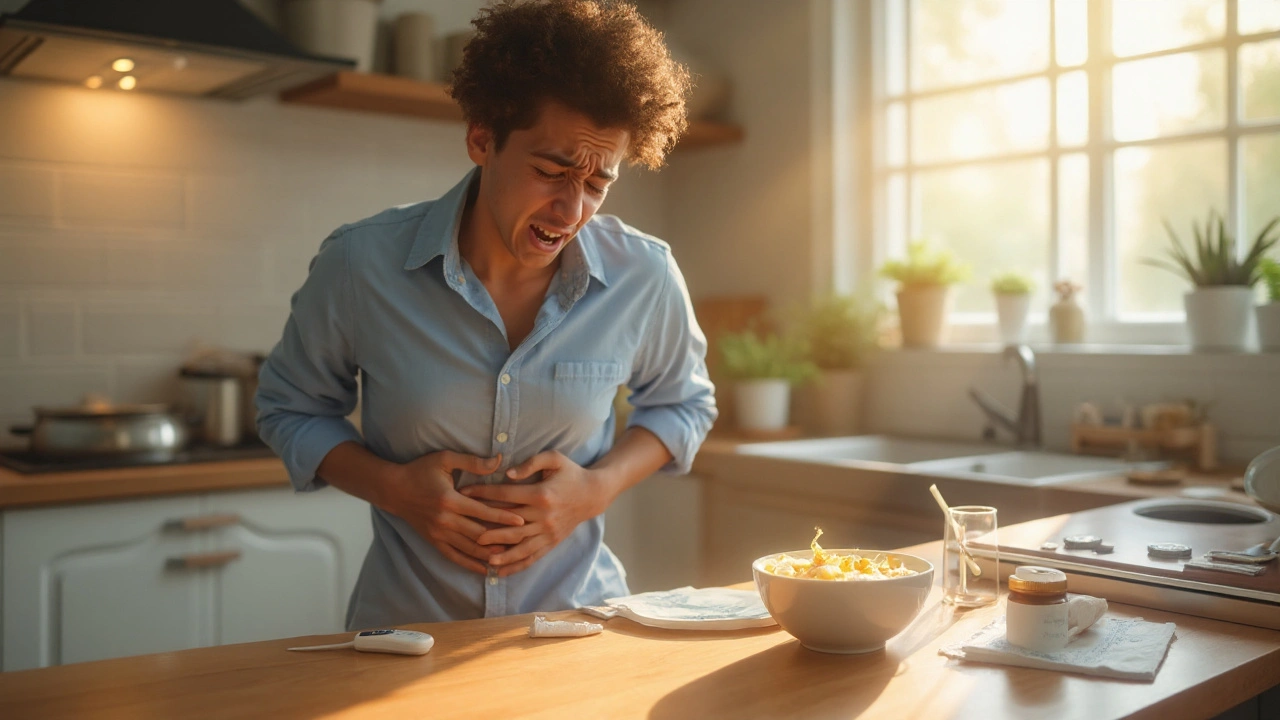Dehydration – What It Is and How to Beat It
When you don't drink enough fluids, your body starts to run low on water and salts. That’s dehydration. It can sneak up on you during a hot day, a tough workout, or even when you're sick. The good news is you can catch it early and fix it with a few simple habits.
Common Signs You’re Low on Fluids
Everybody feels thirsty, but true dehydration shows up in other ways too. Look out for a dry mouth, dark yellow urine, or a feeling of heaviness in the head. You might notice that you’re sweating less, or that your skin feels sticky instead of elastic. When dehydration gets worse, headaches, dizziness, and even a rapid heartbeat can appear. If you notice any of these, grab a glass of water right away.
Simple Steps to Stay Properly Hydrated
First, aim for about 2 liters (roughly eight cups) of fluid a day if you’re average‑sized and moderately active. Adjust up if you live in a hot climate, exercise intensely, or are pregnant. Drinking water is the easiest route, but you don’t have to stick to plain H₂O. Herbal tea, diluted fruit juices, and broths all count toward your daily total.
Don’t wait until you’re thirsty. Thirst is a late warning sign, so sip regularly. Keep a bottle at your desk or in your bag and set a reminder on your phone if you tend to forget. When you’re exercising, drink about 200 ml (7 oz) every 15‑20 minutes, and replace lost salts with an electrolyte drink after long sessions.
If you’re sick with a fever, vomiting, or diarrhea, you lose extra fluids fast. Oral rehydration solutions—mixing a pinch of salt and a little sugar in water—work well, or you can use store‑bought packets. Kids and older adults need extra attention because they often forget to drink.
Watch what you drink, too. Caffeine and alcohol can make you pee more, which can worsen dehydration. If you enjoy coffee or tea, balance each cup with a glass of water. Sugary sodas add calories without helping hydration much; stick to water or low‑sugar options for most of the day.
Finally, listen to your body. If you feel light‑headed or your urine is dark, it’s time to boost fluid intake. Consistent, small sips are better than chugging a big glass once you’re already dehydrated.
Staying hydrated isn’t a big chore—just a few tweaks to your routine. Keep water handy, drink before you feel thirsty, and adjust for heat, exercise, and illness. With these habits, dehydration won’t catch you off guard.
- July 30 2025
- 8 Comments
- Daryl Gardner
Severe Stomach Pain: How It Flags Gastroenteritis, Diagnosis & Relief
Explore why intense stomach pain often signals gastroenteritis, learn to spot the signs, get accurate diagnosis tips, and find effective home and medical treatments.
- Health & Medicine (141)
- Health & Nutrition (8)
- Caregiving & Dementia (2)
- Health & Wellness (2)
- Environment & Climate (1)
Categories
- February 2026 (11)
- January 2026 (24)
- December 2025 (27)
- November 2025 (22)
- October 2025 (27)
- September 2025 (38)
- August 2025 (5)
- July 2025 (4)
Archives
- side effects
- generic drugs
- medication safety
- medication side effects
- medication adherence
- dosage
- online pharmacy
- gut health
- generic substitution
- safety and side effects
- natural antioxidant
- coping strategies
- hypertension
- drug interactions
- immunosuppressants
- mental health
- MedWatch
- drug safety
- NTI drugs
- narrow therapeutic index
